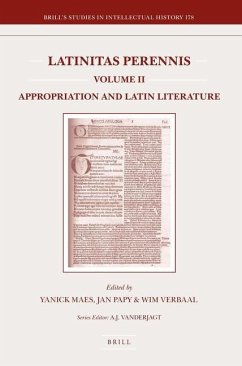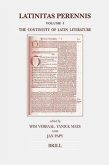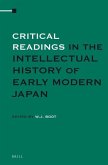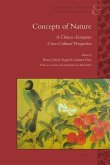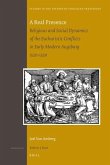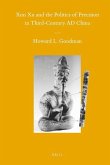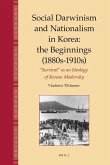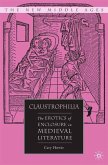No cultural phenomenon can remain vital and evolve without a continuous integration of external elements. Instead of reading the process of appropriation in terms of sources or models, the dynamics involved are better understood using more flexible categories such as creative reception, polyphony and dialogue. In every phase of its evolution, in Antiquity, the Middle Ages or (Early) Modern times, Latin literature had to face a double challenge, one from the past, and one from the present: although the models and heritage of the past always remained normative, contemporary demands had to be met too. The contributions in this volume analyze different moments of intercultural negotiation within the long history of Latin Literature.
Hinweis: Dieser Artikel kann nur an eine deutsche Lieferadresse ausgeliefert werden.
Hinweis: Dieser Artikel kann nur an eine deutsche Lieferadresse ausgeliefert werden.

